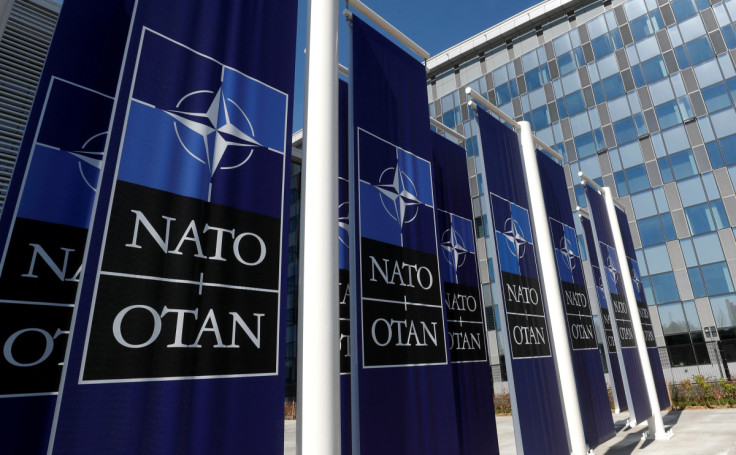NATO To Go Ahead With Planned Nuclear Deterrent Exercise Amid Russia's Nuclear Threat
KEY POINTS
- Nukes are a core component of NATO's overall capabilities for deterrence, defense strategy
- 'Steadfast Noon' exercise to demonstrate NATO's willingness to protect, defend allies
- NATO remains vigilant and is closely monitoring Russia's nuclear forces
Amid veiled nuclear threats from Russia, the U.S.-led Western military alliance NATO has said that it will go ahead with its long-planned annual nuclear deterrent exercises scheduled to be held next week.
"This is routine training which happens every year to keep our deterrence safe, secure and effective," NATO Secretary General Jens Stoltenberg told reporters Tuesday.
Commenting about Moscow's threat to use nuclear weapons in its war with Ukraine, the NATO Secretary General said, "President Putin's veiled nuclear threats are dangerous and irresponsible," adding, "Russia knows that a nuclear war cannot be won and must never be fought."
Speaking at the press conference, Stoltenberg also welcomed "the recent announcements by Allies to provide more advanced air defense systems and other capabilities, and I look forward to further deliveries." NATO will stand with Ukraine "for as long as it takes," he added.
The annual exercise, called 'Steadfast Noon,' involves 14 of the 30 NATO member countries and its aim is to ensure the alliance is prepared for a worst-case scenario. Given the current context of conflict in Ukraine, the exercise will seek to provide "sense of security" to NATO member states.
Although the exercises are annually conducted, this year it coincides with Russian President Putin's recent escalation of threats to use nuclear weapons, warning the West he was not bluffing. Western countries have warned Moscow of "catastrophic consequences" if it uses nuclear weapons.
"We are closely monitoring Russia's nuclear forces. We have not seen any changes in Russia's posture. But we remain vigilant," Stoltenberg said at the press conference.
When asked if it was a good idea to practice flying nuclear weapons around given the heightened threats from Russia and the potential for miscalculation or misunderstanding, Stoltenberg told the outlet, "Now is the right time to be firm and to be clear that NATO is there to protect and defend all Allies."
"We have been open about the exercise and I think it would send a very wrong signal if we suddenly now cancelled a routine, long time planned exercise because of the war in Ukraine. That would be absolutely the wrong signal to send," the NATO Secretary General said.
According to Stoltenberg, NATO's firm, predictable behavior and military strength is the best way to prevent escalation.
"We are there to preserve peace, to prevent escalation and prevent any attack on NATO Allied countries. So if we now created the grounds for any misunderstanding, miscalculation in Moscow about our willingness to protect and defend all Allies, we would increase the risk of escalation and that's the last thing we will do," he said.
Although nuclear weapons are a core component of NATO's overall capabilities for deterrence and defense strategy, as a military alliance, it lacks direct control over any such weapons. The nuclear weapons that are part of the alliance remain under the firm control of three key member-states: the U.S., the U.K. and France.
The 'Steadfast Noon' exercise does not involve any live ammunition, however they involve fighter jets capable of carrying nuclear warheads, conventional jets, and surveillance and refueling aircraft routinely take part.
On Wednesday, the U.S.-led Ukraine Defense Contact Group will meet at NATO where Ukraine's Defense Minister Oleksii Reznikov will provide an update to the alliance ministers on the latest developments on the ground. Meanwhile, on Thursday, the Secretary General will chair a meeting of the Nuclear Planning Group to discuss Russia's nuclear rhetoric and the role of NATO's nuclear capability.

© Copyright IBTimes 2025. All rights reserved.






















